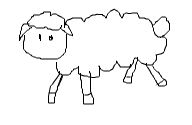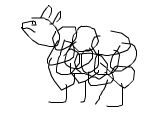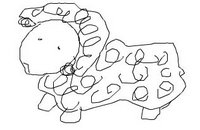Future Jobs For Humans
Many people worry that after robots take over all the jobs then humans will have nothing to do.
There is really no reason to worry for a few reasons. First, if the robots are so smart that they take all the jobs then they should be smart enough to figure out how to make more jobs for humans.
Secondly, robots will never really take over all the jobs. There are some tasks that robots just will never be able to do. Scientists are working on Artificial Intelligence (AI) but 'intelligence' is not all there is to being human. In order to completely replace humans, robots would also have to have built in artificial stupidity. Maybe artificial 'humanity' would be a better term.
Humans can do things and think things that they could never explain or sometimes not even recognize that they are doing. Robots will always need the humans to perform the tasks that do not require 'intelligence' per se but rather some kind of feeling. Like voting for their favorite American Idol.
There are some examples lately of the type of jobs that humans can look forward to in a robot dominated future.
Scientists at Colombia University Laboratory for Intellingent Inaging and Neural Computing have hooked up people to brain monitors to measure their reactions to pictures. There is sometimes an 'aha' moment of recognition when a person sees something interesting. By connecting the person to a computer they can scan volumes of pictures and mark the ones that get a reaction. The viewer-person does not even have to be aware that they bleeped on a picture. They just sit and watch and let their brain do all the work. More...
In a more practical (read commercial) application of human sense and nonsense look at Amazon Mechanical Turk.
This service matches tasks too difficult for a computer to people who want to work on such tasks. The jobs are broken into very small pieces, called Human Intelligence Tasks or HIT's, that pay 1 cent and up each.
There are some high-paying tasks like transcribing podcasts that pay a few dollars, but most of them are for pennies, literally.
The jobs include identifying features in pictures, helping identify meanings of words on web pages, answering matching questions and checking the work of the other HIT's.
I think we have barely begun to discover what people are willing to do for pennies in their spare time. I made $0.93 while watching TV last night for about an hour of clicking.
Aaron Koblin, a grad student at UCLA, paid people 2 cents each to "draw a sheep facing left." In 40 days he got over 10,000 sheep drawings which he now sells at The Sheep Market as sheets of stickers at 20 for $20.
So do not despair that robots will take all our jobs. We will adapt and fill in the gaps left after the robots are occupied doing all the so called 'intelligent' jobs.
There is really no reason to worry for a few reasons. First, if the robots are so smart that they take all the jobs then they should be smart enough to figure out how to make more jobs for humans.

Secondly, robots will never really take over all the jobs. There are some tasks that robots just will never be able to do. Scientists are working on Artificial Intelligence (AI) but 'intelligence' is not all there is to being human. In order to completely replace humans, robots would also have to have built in artificial stupidity. Maybe artificial 'humanity' would be a better term.
Humans can do things and think things that they could never explain or sometimes not even recognize that they are doing. Robots will always need the humans to perform the tasks that do not require 'intelligence' per se but rather some kind of feeling. Like voting for their favorite American Idol.

There are some examples lately of the type of jobs that humans can look forward to in a robot dominated future.
Scientists at Colombia University Laboratory for Intellingent Inaging and Neural Computing have hooked up people to brain monitors to measure their reactions to pictures. There is sometimes an 'aha' moment of recognition when a person sees something interesting. By connecting the person to a computer they can scan volumes of pictures and mark the ones that get a reaction. The viewer-person does not even have to be aware that they bleeped on a picture. They just sit and watch and let their brain do all the work. More...
In a more practical (read commercial) application of human sense and nonsense look at Amazon Mechanical Turk.
This service matches tasks too difficult for a computer to people who want to work on such tasks. The jobs are broken into very small pieces, called Human Intelligence Tasks or HIT's, that pay 1 cent and up each.
There are some high-paying tasks like transcribing podcasts that pay a few dollars, but most of them are for pennies, literally.
The jobs include identifying features in pictures, helping identify meanings of words on web pages, answering matching questions and checking the work of the other HIT's.

I think we have barely begun to discover what people are willing to do for pennies in their spare time. I made $0.93 while watching TV last night for about an hour of clicking.
Aaron Koblin, a grad student at UCLA, paid people 2 cents each to "draw a sheep facing left." In 40 days he got over 10,000 sheep drawings which he now sells at The Sheep Market as sheets of stickers at 20 for $20.

So do not despair that robots will take all our jobs. We will adapt and fill in the gaps left after the robots are occupied doing all the so called 'intelligent' jobs.